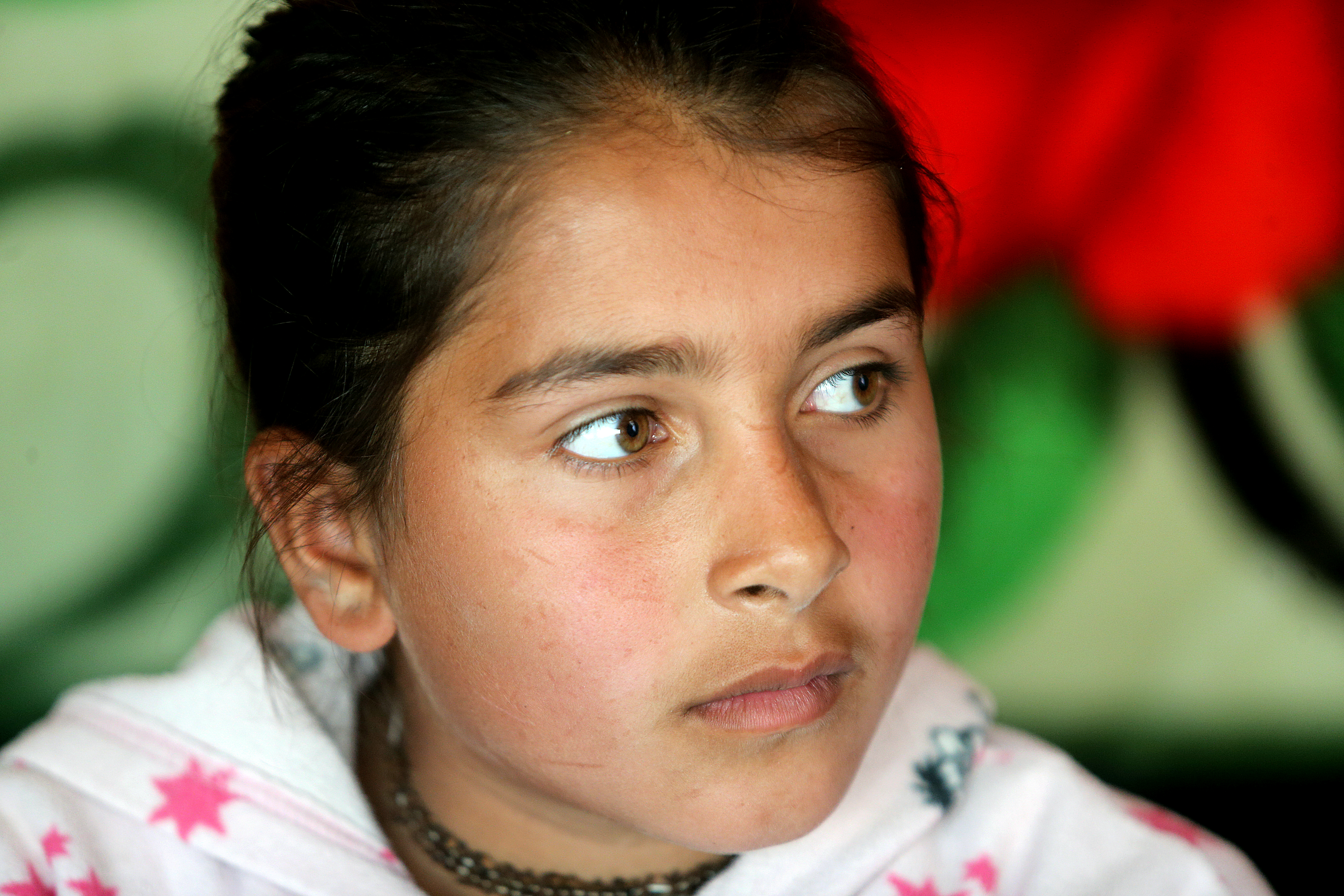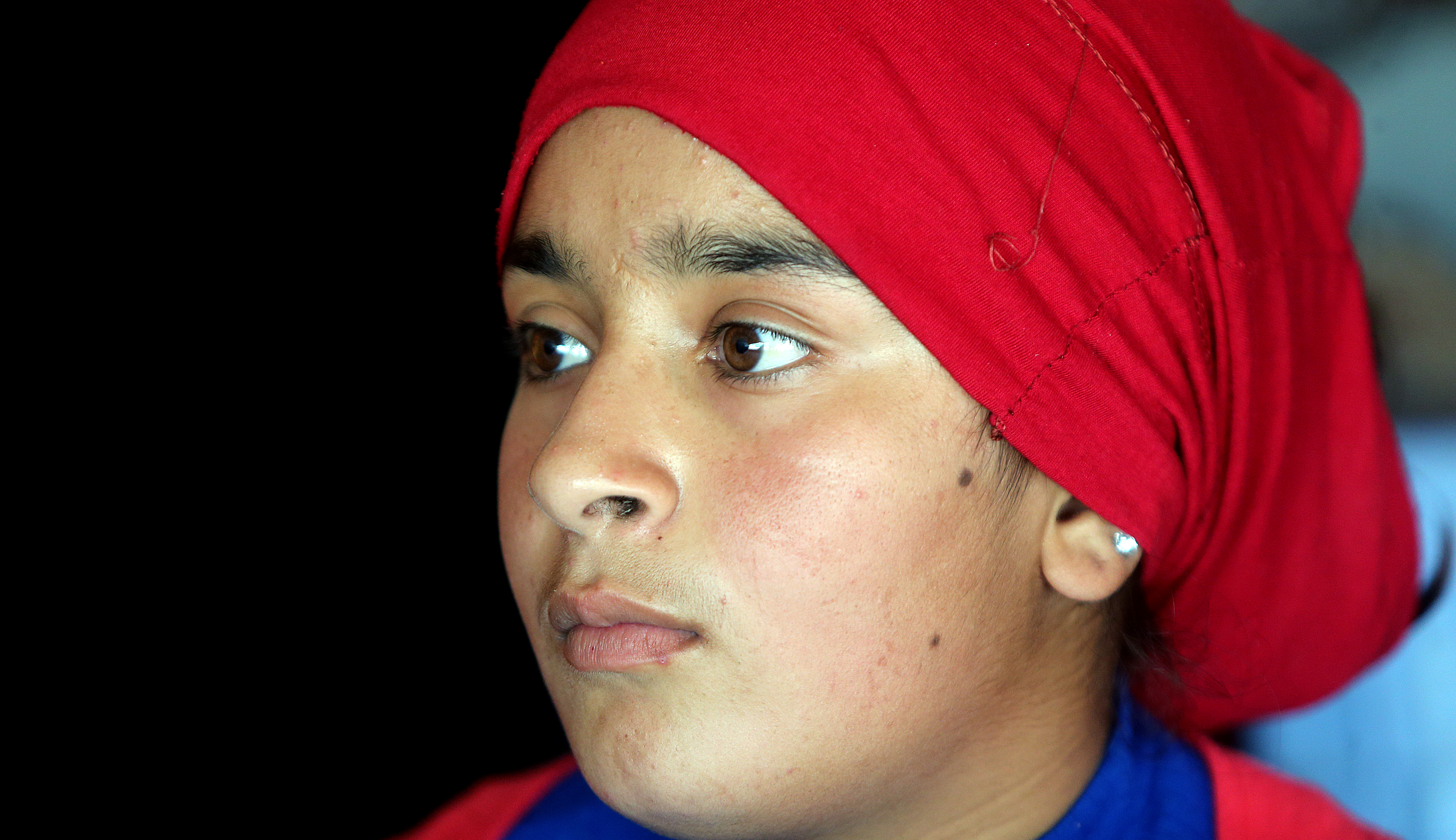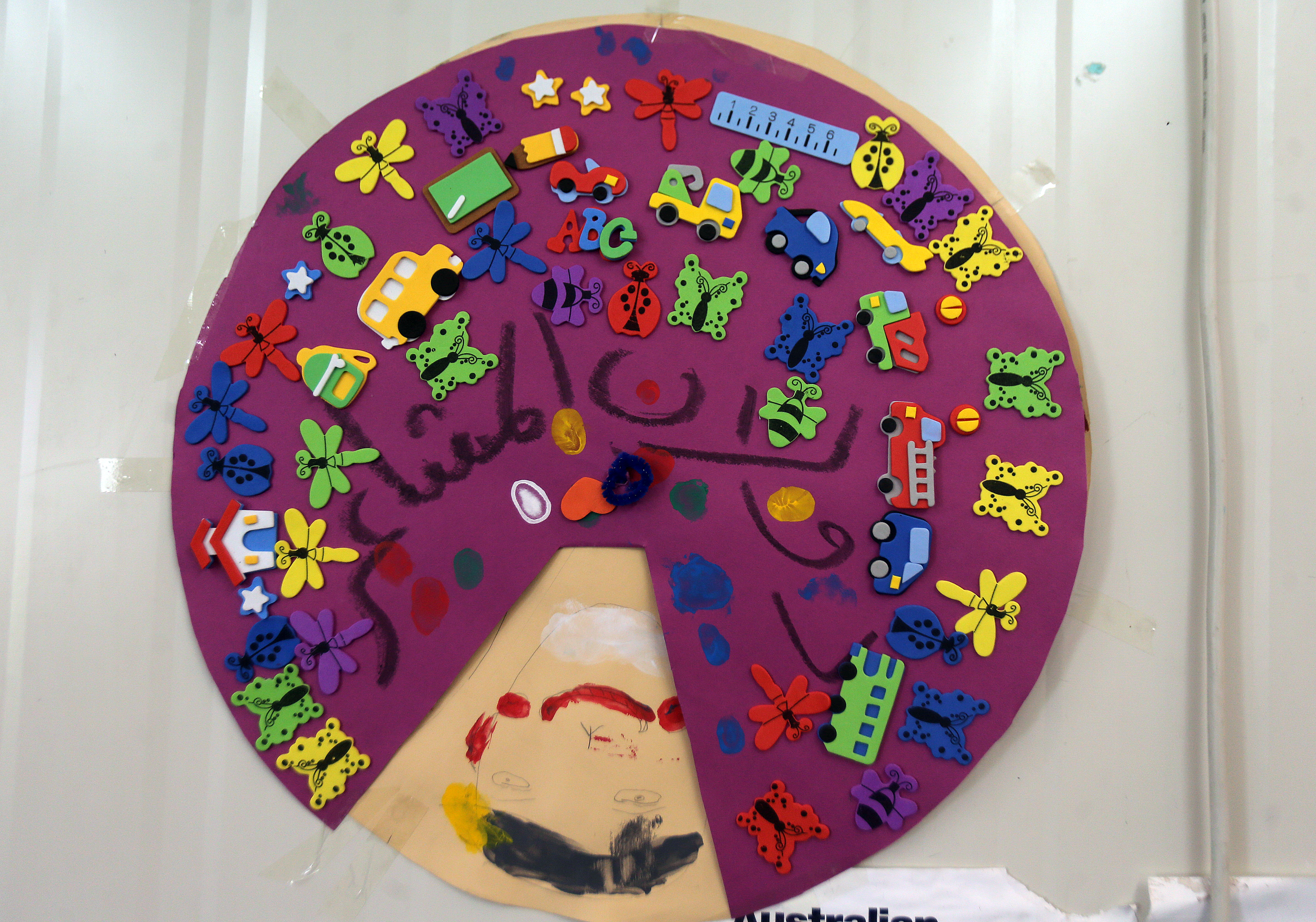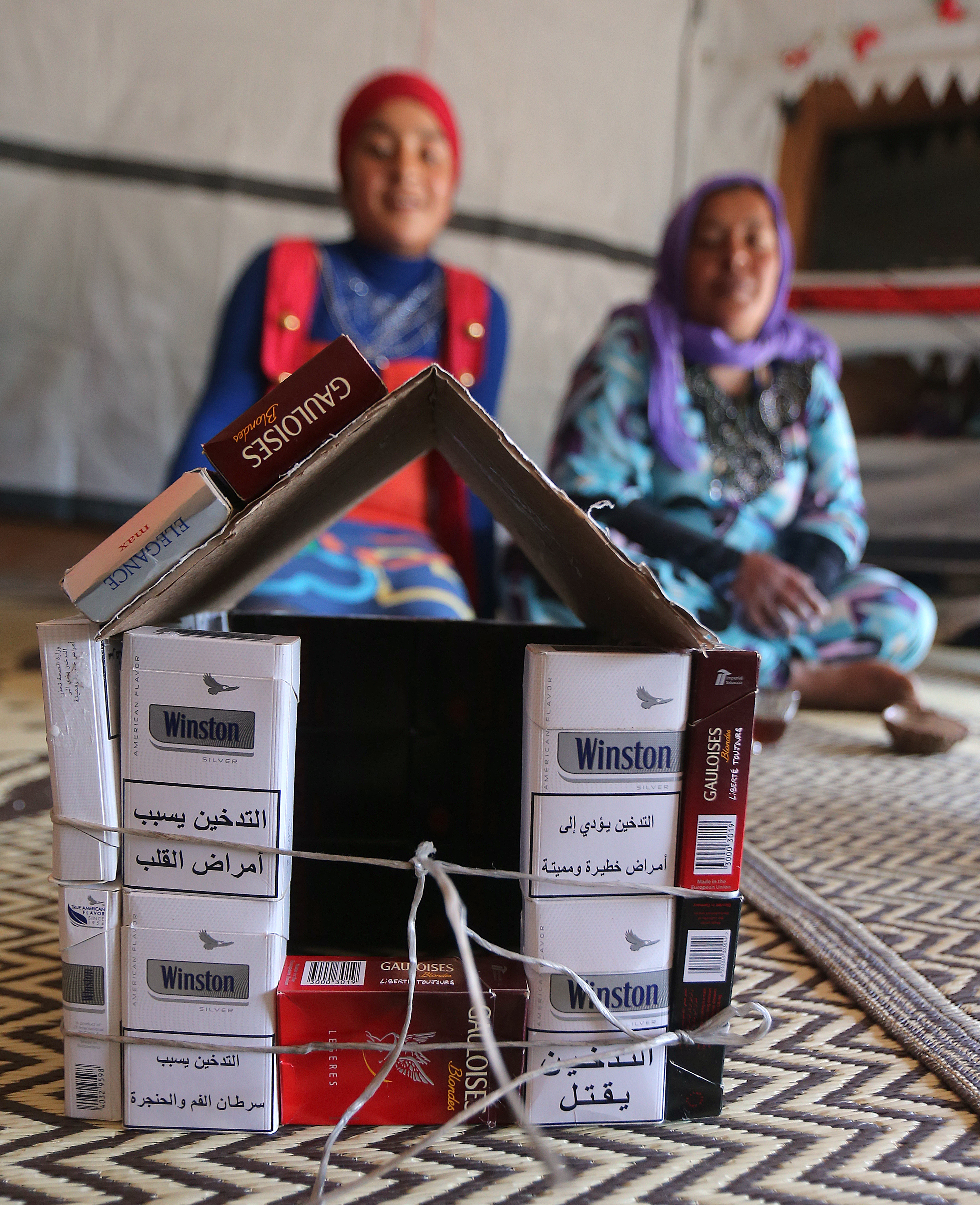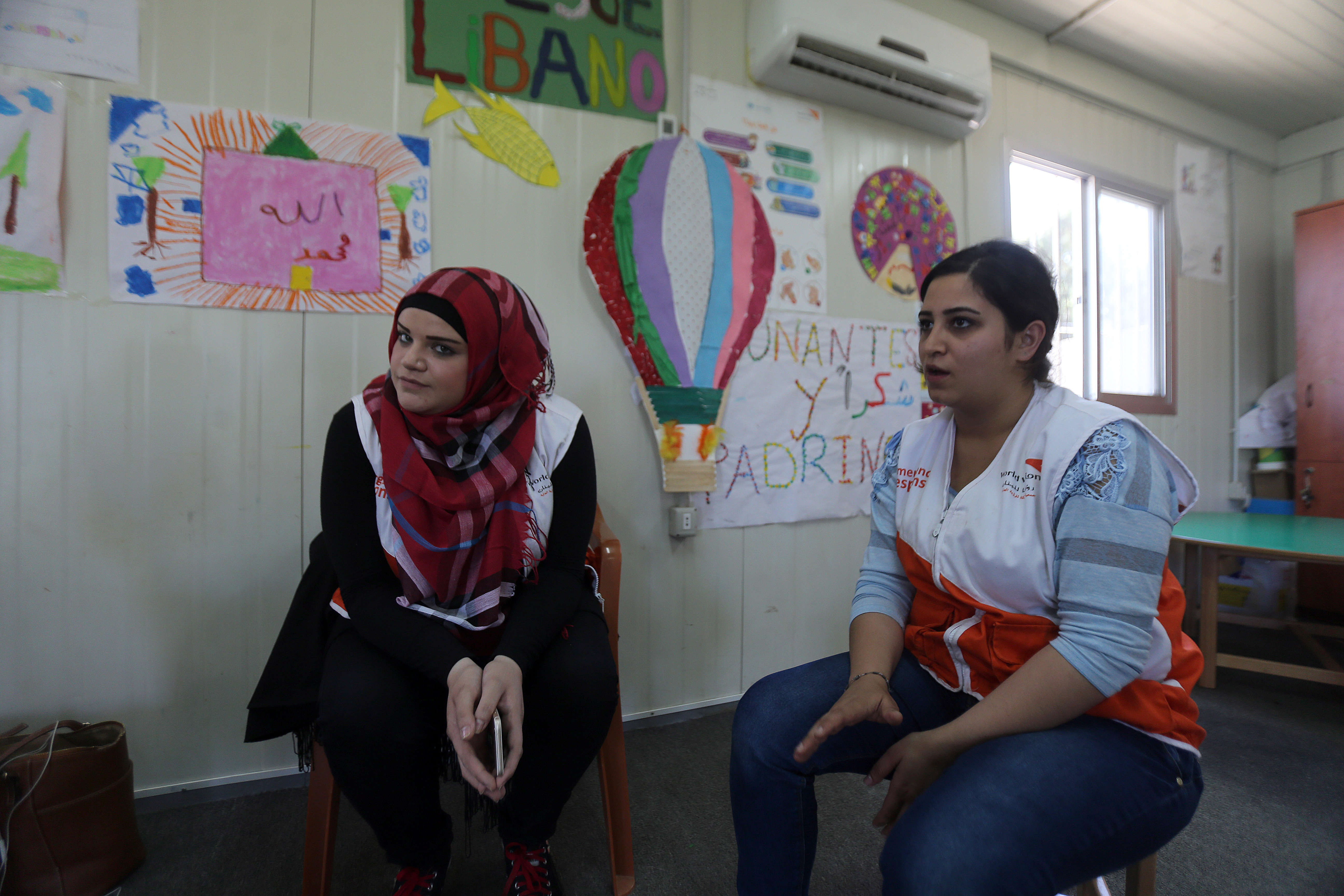'Life isn't beautiful': Syrian children refugees in Lebanon
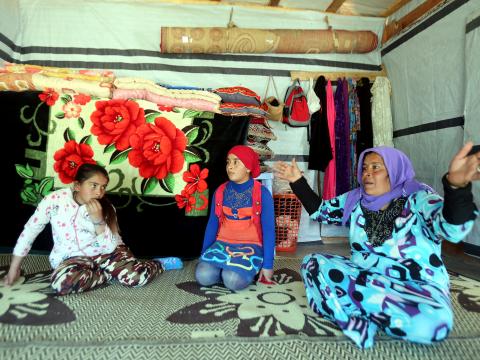
Sitting inside a flimsy makeshift tent in North Lebanon’s Akkar district, it’s hard to imagine that these two young siblings have been working side-by-side with their mom for the past four years.
Young Khadija started working at the age of 6. Now 10 years old, she’s out in the field from 6 a.m. – 2 p.m. selling bottles of water. Once, her performance was unsatisfactory and she was slapped and shouted at by her employer. Still, she continued. “Life wasn’t beautiful because we were always tired,” she says. “We needed the money in order to live. I didn’t have time to think or feel because we didn’t have anything.”
Rajaa, 13, Khadija’s older sister has also been working since the age of nine, growing tobacco, aubergine, and tomatoes. “The work wasn’t beautiful because we were under the sun all day. It’s tiring,” she says. “During harvesting season, we had to carry the potatoes and they were very heavy. Once, I injured myself carrying them and ended up getting sick for six days. My body was aching. It was painful,” she remembers.
Despite the harsh working conditions, the girls continued to push through. They knew that in order to afford anything for the tent, they had to play an active part in supporting the family. Now, looking exhausted and drained, it’s evident that working for years, particularly at a young age, has taken a toll on their health and well-being.
One day, the family was approached by World Vision to register the girls in the Psychosocial Support Centre (PSS); a centre created to provide children with a safe space, promote a sense normality and build their resilience to the crisis. Initially, their mother, Fatima, was concerned that this may interfere with her children’s working schedule. But, after much reassurance and planning, she accepted the offer.
Khadija hides behind her mom and says, “I was so happy because I knew I was finally able to play again.”
“When we were at the centre, it was beautiful. Life was easy,” remembers Rajaa. “I didn’t need to be under the sun anymore. I felt relaxed. The most beautiful activity was the ‘wheel of emotions’ - it’s when we got to describe our emotions of the day. At the centre, I learned how to be happy through making new friends or expressing my sadness by putting sad faces on the wall,” she adds.
Although the PSS twelve-week cycle has now ended for the girls, Fatima is grateful for what the centre has achieved - teaching the girls not to be afraid of their feelings. “Since going to the centre, they’ve lost the feeling of fear,” says Fatima. “[In the past], when they came across an army officer on the road, it would bring back memories of Syria especially the bombs and war. It’s because that fear has always stayed with them - having to flee, the violence and now, being shouted at, at work - it’s always stayed with them. It’s traumatising.”
“My girls still remembered the moment when we had to run out of the house in Syria,” continues Fatima. “Now, they are calmer and, more importantly, have stopped crying at night. They’re willing to interact more with others.”
Rajaa whispers, “Those were the panic memories...the horror memories.”
Since attending the PSS, whenever Rajaa is stressed, she would look at the safe house which she built using her mom’s empty cigarette boxes. "My dream is to have a house just like this. When I'm sad, I look at the safe house – it makes me feel secure," she says.
Inside the PSS centre, classroom animators Ghinwa and Ranin say the transformation of the girls has truly been remarkable. “When they first came here, it was difficult for them to trust us,” remembers Ranin. “For the girls, the circle of care has always been just the uncle, family, themselves and relatives within the settlement,” says Ranin. “The circle of care has over time expanded to us but initially, we were strangers to them. They didn’t know us. For them, all Lebanese were the same – similar to their employers who mistreated them because that’s the only Lebanese they knew.”
To build the girls’ trust, Ranin and Ghinwa needed to be part of the routine for them. “The centre’s main goal is to help children develop their capacity - mentally, intellectually and socially,” explains Ghinwa. “It’s about encouraging them to stay hopeful for the future by mapping out steps to achieve their dreams. Although the cycle is now over, the kids are in a better place. They are able to handle their emotions and they’re more resilient.”
The girls are now back at work again, but thanks to UNICEF, the centre gave 1,620 children like Rajaa and Khadija a chance to play and relax. More importantly, it taught them the ability to express their emotions fully and remain hopeful for the future.
